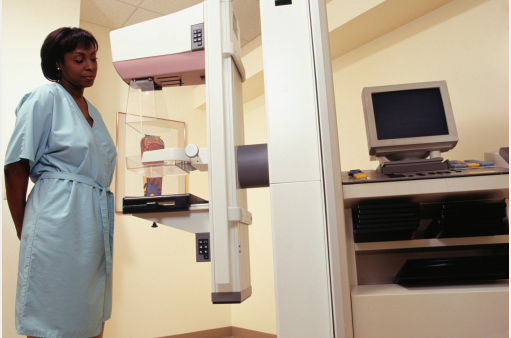
In May, I trekked to the doctor’s office for a mammogram. It was an impulsive decision spurred by an article in Bennett College’s magazine, BELLE. We told the tragic story of one of our alumna, who was 22 when she diagnosed. I was 22 when I edited the story. It was frightening.
So, I began pressing my primary care physician to perform the procedure. As the great-granddaughter of a woman who died from the ravenous disease, I argued that it was imperative for me to have this procedure performed earlier than the recommended 40 years of age. So what it was 18 years earlier? It’s better later than never, right?
After months of debating with the doctor, I was referred to an expert who agreed to administer a mammogram on my young body.
I was petrified as I waited for the results. I knew that I didn’t have cancer (and I forced this doctor into performing the mammogram because of that article), but there is something about waiting that can cause an idle mind to wander ceaselessly. I kept thinking … “What if all those self-exams failed? What if I did them wrong? What if I’m 22 with cancer? What happens next?”
For two days, I waited near the phone as I considered all of the negative possibilities. I googled as much information about breast cancer as I could and concluded that my future daughter, Zora, would be difficult to conceive. Oh, and I also decided to become involved with Susan G. Komen for the Cure.
Finally, at 10 a.m. on the second day, I received a call from the radiologist. I was cancer free. I breathed a sigh of relief and finally slept.
Now that I know my status, I challenge other millennials to convince a doctor to conduct the mammogram. It isn’t routine, but it’s necessary.
Denise Roberts was diagnosed with breast cancer at 35, after spending three years convincing her doctor to perform a mammogram. After a modified mastectomy and regaining cancer-free status, Roberts founded the Denise Roberts Cancer Foundation to provide resources to young, black women often forgotten in the breast cancer struggle.
She’s not alone. The Young Survival Coalition reports that approximately 70 thousand men and women age 15 to 39 are diagnosed with cancer in the US. Breast cancer accounts for roughly 15 percent of all cancers in this age group.
Plus, women ages 15 to 34 and 35 to 54 die more frequently from breast cancer than any other cancer because the cancer is much more aggressive.
It’s time to realize that breast cancer isn’t our grandmothers’ disease anymore. It is ours to confront as well. There aren’t effective screening tools for us, outside of the mammogram, so it’s our responsibility to perform self-exams every month and to the pressure our doctors to take our concerns seriously.
Our futures depend on this. Our sisters with cancer are more prone to earlier menopausal symptoms. Some of them will be unable to reproduce because of the radiation and chemotherapy treatments according to the Young Survivor’s coalition. Their fight is ours.
If nothing else, ask the doctor for a clinical breast exam every visit. You also have leveraging room if you have a family history of breast cancer. This allows for a risk assessment, which will determine the need for a mammogram.
So, though I’m a drama queen and that mammogram may have seemed unnecessary, there is no price that can be put on peace of mind. True life, I had a mammogram. You should too.



